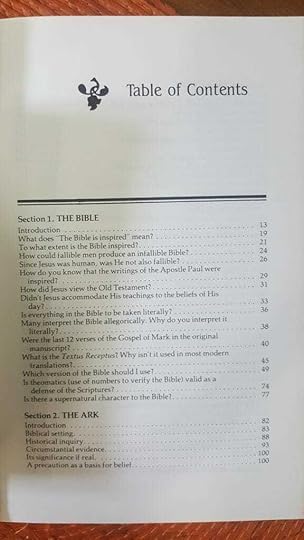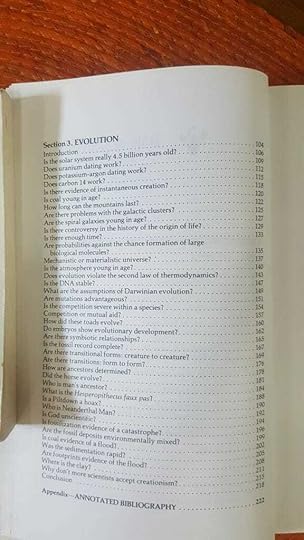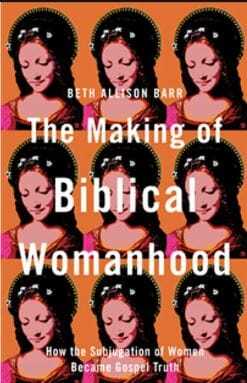Randal Rauser's Blog, page 31
August 23, 2021
Reviewing the 1 Star Reviews of Jesus Loves Canaanites
My book Jesus Loves Canaanites has garnered two 1-star reviews at Amazon since its release in April. In this article, I’m going to review the reviews. Review 1 Here’s the first: A Thoroughly Un-Christian Book Reviewed in the United States on May 31, 2021 If Rauser didn’t claim to be a Christian then you wouldn’t […]
The post Reviewing the 1 Star Reviews of Jesus Loves Canaanites appeared first on Randal Rauser.
August 21, 2021
Eight Problems of Biblical Violence in Three Minutes
A brief survey of eight distinct problems of biblical violence that every Christian needs to consider. ?
The post Eight Problems of Biblical Violence in Three Minutes appeared first on Randal Rauser.
August 18, 2021
An Interview on Canaanites and Epistemology
August 17, 2021
i feel like dying: A Conversation on Depression
In this video, I have a conversation with my brother, Rick Rauser, about the reality of clinical depression.
?
The post i feel like dying: A Conversation on Depression appeared first on Randal Rauser.
August 13, 2021
Being a Christian is not the Same Thing as Being Saved
August 12, 2021
A Simple Illustration of the Crazy Priorities of Fundamentalist Christian Apologetics
 I had a copy of this book, Reasons Skeptics Should Consider Christianity by Josh McDowell and Don Stewart, back in the 1980s (although my edition was colored green). I studied it closely and compiled notes of the main arguments on the typewriter, short bullet points that I memorized for debate. (In fact, I refer to the book in my 2017 book What’s So Confusing About Grace?)
I had a copy of this book, Reasons Skeptics Should Consider Christianity by Josh McDowell and Don Stewart, back in the 1980s (although my edition was colored green). I studied it closely and compiled notes of the main arguments on the typewriter, short bullet points that I memorized for debate. (In fact, I refer to the book in my 2017 book What’s So Confusing About Grace?)
I ran across this gem again today in a thrift store for a dollar: alas, that price was too much for me. But I did pause to take pictures of the book and its table of contents. And while I remember it having skewed priorities, looking at the table of contents brought home anew just how distorted are the priorities of fundamentalist Christian apologetics. Granted, they may have improved somewhat in the last thirty years, though from what I’ve seen, I doubt that.
Anyway, check it out: after a brief introductory section, we turn in section 2 to defending the historicity of Noah’s ark and in section 3 to attacking Neo-Darwinian evolution. And that’s it! That covers the “Reasons” that skeptics should consider Christianity.
Josh McDowell seems like a genuinely nice person and no doubt he has done much good over the years and touched many lives. But books like this have left a terribly legacy, a grossly distorted understanding of what it means for Christianity to be true and what are the hills to die on. To this day, I regularly meet post-Christians who are casualties of this kind of tragically errant message.


The post A Simple Illustration of the Crazy Priorities of Fundamentalist Christian Apologetics appeared first on Randal Rauser.
Drunkards, Sin, and God’s Kingdom: A Reappraisal
I 1 Corinthians 6:10, Paul tells us that drunkards are unrighteous and that they will not inherit the Kingdom of God. In short, Paul seems to view the alcoholic as a wicked sinner in rebellion against God. But what if we think about alcoholism from the perspective of modern psychiatry as primarily a therapeutic rather than a moral problem?
?
The post Drunkards, Sin, and God’s Kingdom: A Reappraisal appeared first on Randal Rauser.
August 9, 2021
The Unmaking of Patriarchy: A Review of The Making of Biblical Womanhood
 Beth Allison Barr, The Making of Biblical Womanhood: How Subjugation of Women Became Gospel Truth. Brazos Press, 2021.
Beth Allison Barr, The Making of Biblical Womanhood: How Subjugation of Women Became Gospel Truth. Brazos Press, 2021.
In 2016, Beth Allison Barr’s husband lost his job as a youth pastor, a position he had held for more than fourteen years. The reason? He dared challenge the church’s complementarian stance on women in ministry. The church would not even allow the man to offer a defense of his views in person. In their view, he was capitulating to “feminist culture” and he had to go. Over the next few months, Barr and her family lost close friendships that they had cultivated over years and all because they dared challenge the entrenched patriarchy of one small Texas church.
I suppose we can thank that small Texas church for their hard-nosed stance, for the painful events in the autumn of 2016 ultimately served as a catalyst for Barr, a trained historian at Baylor University, to write The Making of Biblical Womanhood. The book weaves vignettes from Barr’s own painful personal narrative, both with respect to that church and an earlier abusive relationship, along with strands of hermeneutics, theology, and lots of history as befitting a historian’s perspective. And the result is a spirited critique of patriarchy which Barr condemns in no uncertain terms as closely aligned with racism and even countenancing straight-up heresy (more on that anon).
Barr makes some interesting points regarding the question of hermeneutics. For example, she recalls having students read through all the names of women in Romans 16 while taking note of such details as the primacy of Priscilla (v. 3), and the way the patriarchy attempted to cover up Junia’s apostleship (v. 7) and Phoebe’s status as a deacon (v. 1). Needless to say, the prominence of women in leadership positions in the early Christian movement is a stark contrast to the Roman culture of the paterfamilias. It also warrants alternative readings of a passage like 1 Corinthians 14:34-35: Barr suggests the view defended by some scholars that Paul is here quoting a view he himself rejects, an interpretation suggested by the sharp turn in verse 36.
But the real weight of the book, not surprisingly, comes in its historical analysis. Barr skillfully integrates the narratives of several female voices throughout church history while noting the marginalizing ways women have been portrayed (e.g. through tendentiously narrow definitions of ‘preaching’). One of the surprises of the book is how many options there were for women in the medieval period relative to the retrenchment that came with the Protestant Reformation where women were, as it were, ‘domesticated’. Perhaps even more disturbing is the recent deepening of patriarchy among conservative Protestants such as the Southern Baptist Convention and Gospel Coalition. And here we speak not simply of the usual suspects such as Wayne Grudem, James Dobson and John Piper, but also the views of the more winsome and “moderate” voices like Tim Keller and Russell Moore. (For a more in-depth study of the evangelical patriarchy in recent decades, see Jesus and John Wayne.)
I did have one significant disagreement with this book. At one point, Barr flatly accuses gender complementarians of the heresy of Arianism in light of the recent trend of arguing for an eternal subordination of the Son. (The reason this is relevant at all is due to the fact that these complementarians then argue that this provides a model for the subordination of the woman to the man.) I agree that there is a problem here, just not the one Barr thinks. The problem, I would submit, comes when Christians try to use the doctrine of the Trinity, an obscure doctrine by any measure, as justification for various social and/or political programs. And that phenomenon goes far beyond complementarianism. The problem is no less troubling when egalitarians argue that the equality of the divine persons warrants a model of the equality of gender relations. Rather, I would propose a general moratorium on this programmatic pillaging of the Trinity for our pet agendas whether it be complementarianism, egalitarianism, or anything else.
The Arian charge stands out, however, because it is so uncharitable. Arianism is the view that the Son is the first and greatest creation of the Father, a sort of demiurge through which the Father created all other things. For the Arians, there was a time (ontologically if not temporally) when the Son was not. This is indeed a heretical view, but it is very different from the complementarians who argue that the Son, in the divine eternal taxis of the triune God, is begotten of the Father and thus gives all back to the Father: “When he has done this, then the Son himself will be made subject to him who put everything under him, so that God may be all in all.” (I Cor. 15:28) Complementarians do not argue that the Son is ontologically inferior to the Father: quite the opposite, in fact. The whole point is that there is ontological equality even as there is role differentiation.
I don’t make the point due to sympathy with the complementarian position, because I have none. But frankly, I am disturbed when we become so uncharitable toward a position that we disagree with that we are motivated to poison the well by associating the view with heresy. Unfortunately, that is what Barr does here. She is rightly disturbed when the Gospel Coalition attempts to write patriarchy into the Gospel. But it is equally wrong, in my view, to return that insult by arguing that patriarchy is somehow heretical.
While I see the Arianism charge to be an unfortunate one, it should not detract from the overall achievement of this book. The Making of Biblical Womanhood is an incisive critique of patriarchy, one which illustrates the richness of a Wesleyan approach to theological reflection that recognizes the extent to which history and practical experience feed into the process of theological reflection no less than biblical exegesis and hermeneutics. I highly recommend this book.
You can order The Making of Biblical Womanhood here.
The post The Unmaking of Patriarchy: A Review of The Making of Biblical Womanhood appeared first on Randal Rauser.
August 8, 2021
Why Christians Should Accept that Jesus Had False Beliefs
In this video, I explain how, in virtue of his human psychology, Jesus gained wisdom and knowledge over time and this would include Jesus having held beliefs at one time which he later came to recognize as false.
?
The post Why Christians Should Accept that Jesus Had False Beliefs appeared first on Randal Rauser.
August 7, 2021
The Most Reprehensible Genocide Apologetics Talking Point Of All
Genocide apologetics is the enterprise of attempting to defend the ethics of a historical reading of the conquest of Canaan, one which meets the legal definition of genocide. In other words, it aims to argue that genocide is really not intrinsically evil and in some cases, it may even be morally praiseworthy.
In Jesus Loves Canaanites I argue that genocide apologetics is, to put it bluntly, evil. It is evil in much the same way that nineteenth-century pro-slavery apologetics was evil. It attempts to persuade us to deny that which we really know to be true and it often does so by appealing to bad arguments and offensive talking points. As a case in point, consider this tweet posted just this morning by a fellow named Dave Thiessen:
I think this gets back to what you think of whether as God being the author of life is actually murdering people, or merely changing their location.
— Dave Thiessen (@daveythiessen) August 7, 2021
Thiessen combines two standard talking points here: God is the author of life and thus has the right to give and take life as he wills and killing a person is actually just changing their location. The problem with the first point is that the topic isn’t simply what God allows but what God commands. As the author of life, God may, consistent with his perfect nature, allow me to be tortured by a deranged serial killer. But it does not follow that God may, consistent with his perfect nature, issue a command that morally obliges the serial killer to torture me or which makes the torturing of me a moral good. And yet, that is the topic here: the claim that genocide can be a moral obligation and a morally good/praiseworthy action.
But if the first point is merely a misfire, the second one truly takes us into the basement of genocide apologetic rhetorical strategies. I don’t know if Thiessen got this talking point from Frank Turek but it is one that I have heard Turek use before. In the article “Frank Turek on the Slaughter of the Canaanites. And My Response,” I offer the following reply:
“Next, Turek makes what is arguably his most outrageous and appalling claim: ‘If Christianity is true, people don’t really die. They just change location.’ So according to Turek’s logic, the Nazis were just helping European Jews to “change location.” And in 1994, the Hutus merely dispatched 800,000 Tutsis to a new location.”
In retrospect, my rejoinder may have been a bit too brief. It is important that we appreciate just how frankly disgusting and absurd Turek’s statement is.
Let’s think for a moment about The Passion of the Christ. This controversial film was provocatively described by one critic as “The Jesus Chainsaw Massacre” because it lingered for two hours on the extended process by which Jesus was killed. But if critics saw an appalling “snuff film” that offended their moral sensibilities, countless Christians saw an unparalleled display of the visceral reality of what it meant for Jesus to lay down his life for his friends (John 15:13).
But according to Turek, if Christianity is true then Jesus didn’t really die: he just changed location. So we should presumably be less horrified by the actions of the people who called for his flogging and crucifixion and those who carried it out because they were just helping him change locations.
Who would ever have the gall to make such an inane and offensive attempt to diminish the horror of the death of Jesus?
Next, imagine scaling that same logic up to the smoking ruins of a genocidal killing field, one in which thousands of bodies litter the landscape, with untold numbers of victims groaning in agony with fatal head wounds having cleaved their skulls open, brains oozing out as their wild eyes dart about in desperation, breathing becoming more labored with every gasp, abdomens ripped open and entrails spilled out into the dust…
Now tell yourself: this is not an atrocity. Those people are just slowly changing locations.
When I say that genocidal apologetics in general, and specific rhetorical talking points like this beaut from Frank Turek are evil, I am not engaging in hyperbole. I mean it: they are evil. They are bald attempts to corrupt human moral thinking to sustain an unsustainable reading of the Bible and to persuade us that evil is good and good evil.
Isaiah 5:20
Woe to those who call evil good
and good evil,
who put darkness for light
and light for darkness,
who put bitter for sweet
and sweet for bitter.
The post The Most Reprehensible Genocide Apologetics Talking Point Of All appeared first on Randal Rauser.



